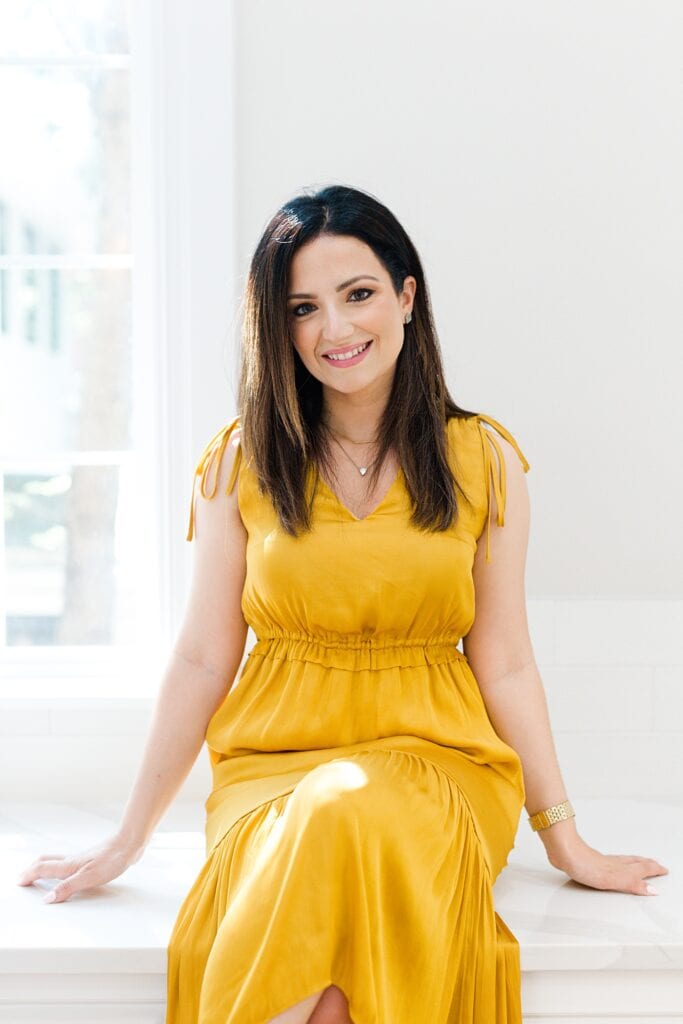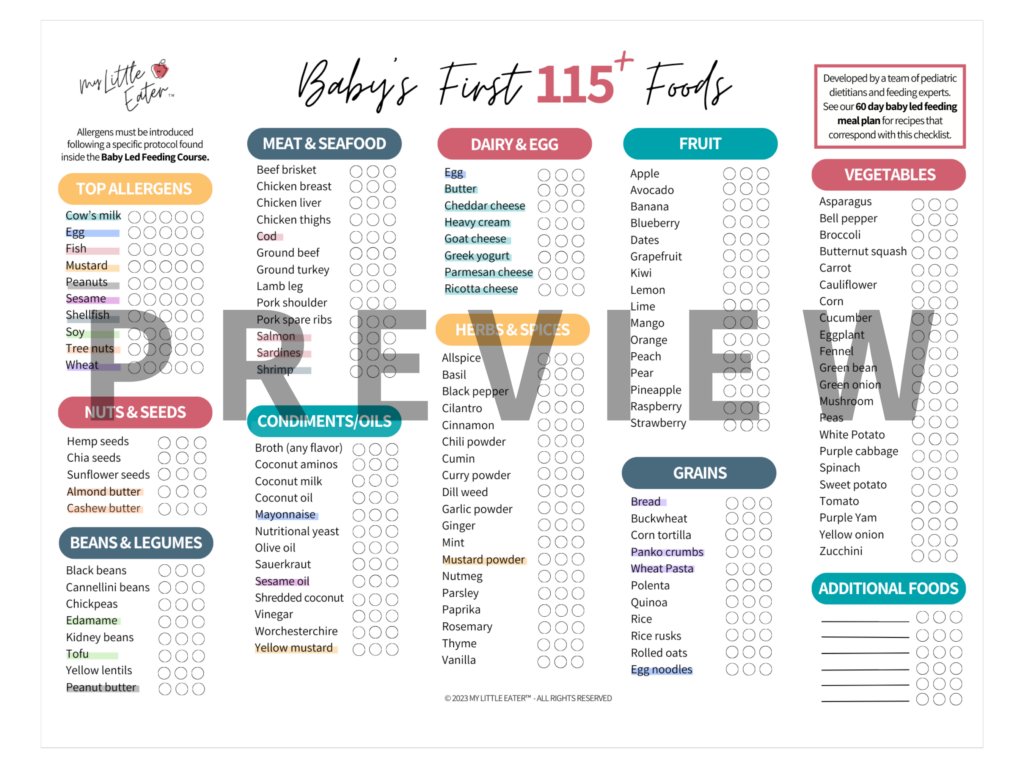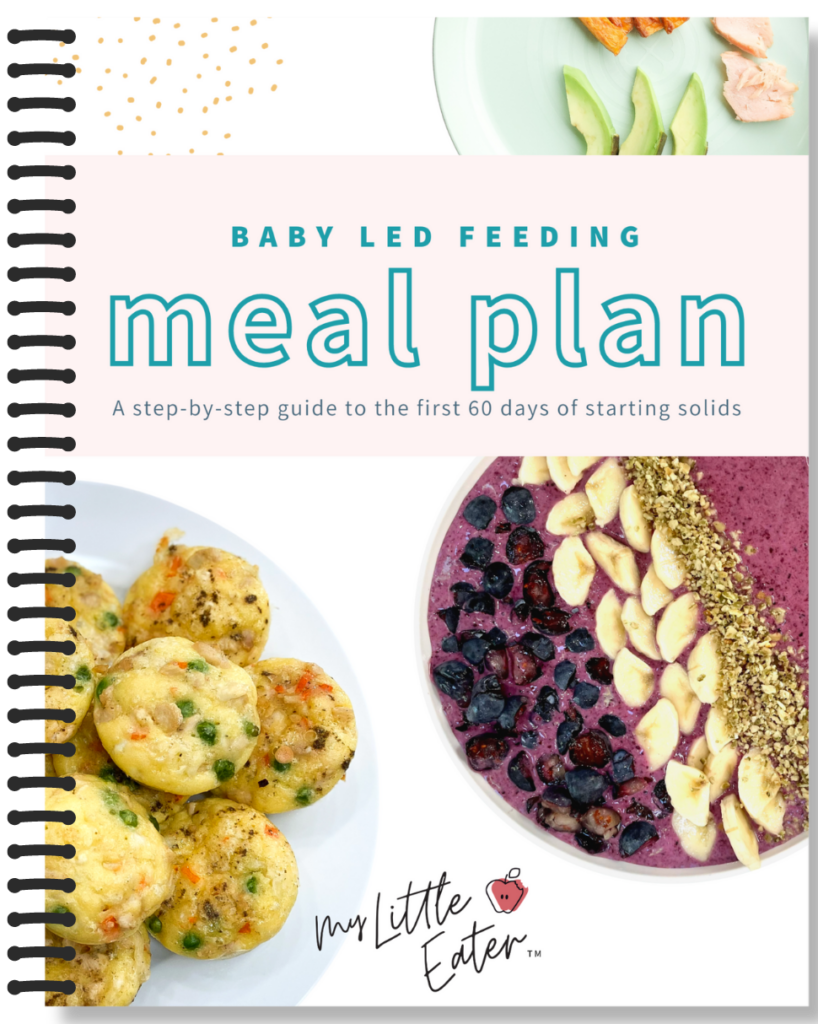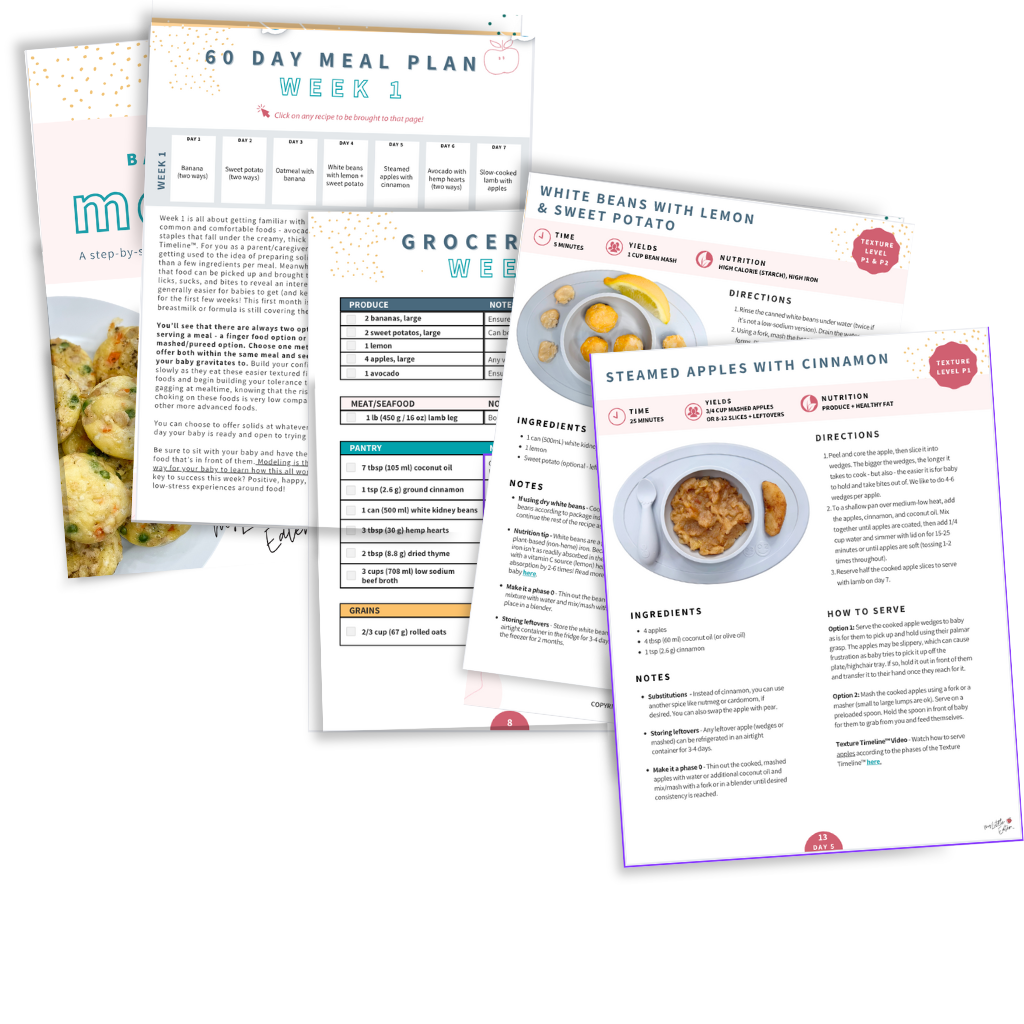This blog was written by Eva Klein – a Pediatric Sleep Consultant, owner of My Sleeping Baby, and a mom of 3. Learn more about what she does and how she can help with your child’s sleeping.
As a pediatric sleep consultant with years of experience, I’ve helped tons of new parents wean their babies and toddlers off night feeds. In fact, one common question that pops up time and time again is “When can I let my baby sleep through the night without a feeding?”. You can’t blame them – going back to a full night’s sleep is high on any family’s wish list!
Let’s get you the answers you need. In this blog post, I will discuss the following:
- The appropriate timing for babies to sleep without night feeds
- The step-by-step process of night weaning and getting your baby back to sleep
- The differences between the night-weaning process with breastfed and bottle-fed babies
- How to wean older babies or toddlers from night feeds who genuinely wake up hungry at night

Table of Contents
What is night weaning?

Night weaning involves the gradual redistribution of calories from the nighttime to the daytime. This either entails transferring a portion of nighttime calories to daytime hours or ALL of your little one’s nighttime calories to the daytime. The approach you use may vary depending on your baby’s age and developmental stage.
To clarify, the objective is not to entirely eliminate these calories. Instead, it involves the gentle transfer of nighttime calorie consumption to daytime, ensuring that your baby is less hungry during the night.
When can a baby sleep through the night without a night feeding?

Typically, this significant milestone occurs at around 8 months of age. That said, technically babies no longer require feedings at night for nutrition after 6 months of age. Most healthy infants at this stage can enjoy a restful 11-12 hours of sleep without the need for a night feeding.
Please note: If your baby is a premie, be sure to follow their corrected age.
Surprisingly, even as early as 16-18 weeks of age (corrected), many babies can achieve a full night’s sleep with just a single nighttime feeding. This means you REALLY don’t need to be feeding your younger babies multiple times a night after 4 months old.
Do babies need to be a certain weight first?
It’s important not to overly stress about your baby’s height or weight percentile when deciding whether to start night weaning. As long as they are in good health and consistently following their growth curve, their size will not impact their potential to become great sleepers!
Why babies under 8 months old struggle with night weaning

While your doctor may tell you that your baby no longer requires night feeds because they’ve reached a certain weight, this is actually a half-truth.
Sure, your little one might not NEED those feeds from a nutritive standpoint after 6 months of age. However, there’s a lesser-known developmental aspect of being able to sleep through the night, particularly in those early morning hours, without waking up.
In order to stay asleep in those early morning hours, babies need “mature sleep skills”. These skills are usually acquired around 8 months of age, sometimes earlier. So, if a younger baby lacks this sleep maturity, they may struggle to stay asleep or fall back to sleep, without a feed in those early morning hours. This is true even if they don’t require the calories and are getting enough feeds during the day. Taking this night feed away too soon might result in some ugly early-rising issues, and NOBODY wants that!
How to ditch these night feeds

The #1 rule with night weaning is to remove these feeds gradually (though not TOO gradually).
Reducing the bottle size by 1 ounce each night can be beneficial for bottle-fed babies. Breastfed babies can have their feeding times reduced by 1 minute per night. These are small enough amounts that your baby shouldn’t get too upset, but they’re also big enough to help you make real progress.
Maintaining a written log of your baby’s progress is crucial for tracking their intake accurately and planning for subsequent nights.
If your little one is taking down FULL night feeds, never go cold turkey and remove these feedings abruptly, especially if you’re breastfeeding. If your baby is used to waking up and eating quite a bit at night, they’ll be genuinely hungry and frustrated. On top of that, you could end up engorged or with Mastitis. That’s never fun.

However, if your little one is waking up to eat but isn’t ACTIVELY eating for most of the feed, this usually means they’re not getting many calories. If this is what’s happening, you CAN remove this feed cold turkey.
Why night weaning might not work - a word of caution

It’s important to recognize that even after successfully night weaning your child, there may still be instances of nighttime awakenings if other underlying factors contributing to their disrupted sleep have not been addressed.
For example, if your child is experiencing night wakings due to an improper daytime schedule or because of weak independent sleep skills, you might experience night wakings completely unrelated to hunger. This usually means these sleep challenges need to be addressed as part of a bigger sleep plan to see real results.
FAQs about night feedings and getting babies back to sleep
Will introducing solid foods speed the night weaning process up?
Yes and no.
You might have heard that solid foods can work wonders for achieving longer, uninterrupted nighttime sleep. I wish it were as straightforward as it sounds. However, the reality is that the connection between solid foods and sleep is more intricate than a simple cause-and-effect relationship suggests. And it doesn’t guarantee an amazing night’s sleep.

How come? Here are a few key factors to consider:
- Developmental Readiness: Babies in the 4–8-month age range usually need one night feed, regardless of their solid food consumption. This is because babies require a certain level of “sleep maturity” to stay asleep in those early morning hours, without waking up. Many babies don’t reach this developmental milestone until the 8-month mark, regardless of how much solid food they’re eating.
- Individual Variations: Every baby possesses a unique sleep pattern, and these patterns can differ significantly. Some babies may naturally sleep for extended periods, regardless of their food intake, while others may experience more frequent awakenings regardless of their solid food consumption. Hunger isn’t the only reason babies and toddlers unnecessarily wake up at night.
- Nutritional Balance: Although introducing solids introduces new flavors and nutrients, remember that they should not replace breast milk or formula as the primary source of nutrition during your baby’s first year. Ensuring a well-balanced diet that includes appropriate amounts of breast milk or formula alongside solids is of utmost importance.
- Gradual Transition: The introduction of solid foods is a gradual process. Initially, it’s more about exploration and taste than providing a significant calorie intake. Babies need time to acclimate to new solid foods, and their digestive systems require time to adapt. Therefore, it’s important not to expect an overnight transformation in their sleep patterns by simply introducing solids.
Does it take longer for a breastfed baby to sleep through the night?

Good news – breastfed infants are equally capable of achieving uninterrupted sleep throughout the night or requiring only one feeding, just like bottle-fed babies. There are several sources for this misconception that I’d like to address.
1. Bottle-fed newborn babies can sleep longer periods, but only temporarily.
During the initial weeks of a baby’s life, it’s not uncommon for formula-fed infants to experience longer stretches of nighttime sleep compared to breastfed infants. This is because newborns have small stomachs that fill up quickly. Bottle feeding, particularly with formula, often provides a more substantial feed due to its higher calorie density and slower digestion rate. This often leads to longer periods of sleep at night.
Nonetheless, as a baby grows and graduates that newborn stage, their stomach capacity increases. This allows them to consume more milk, regardless of whether it’s breast milk or formula. Additionally, as your newborn progresses into infancy, their sleep patterns become more intricate, and nighttime awakenings are no longer solely driven by hunger.
2. Growth spurts are much easier to address with a bottle-fed newborn, but only temporarily.

Another factor contributing to the potential for longer stretches of sleep with bottle-fed newborns is the ease and speed with which their increased caloric requirements during growth spurts can be met.
During growth spurts, babies experience an increase in appetite. When breastfeeding, it may take 1-2 days for a mother’s milk supply to match the heightened demand of her baby. Until her milk supply catches up to her baby’s needs, the mom can find herself utterly exhausted from the constant breastfeeding.
On the other hand, with a bottle-fed baby, you can simply fill the bottle with the increased amount of milk. This means that during a growth spurt, you can simply give your baby a larger bottle. That’s all!
However, as babies continue to grow and their bodies mature, their sleep patterns and dietary needs evolve. With older babies, a growth spurt simply means that your little one needs to eat more during the day.
3. Breastfed infants typically consume fewer calories per feeding compared to bottle-fed babies, but this can be managed.

The fact that breastfed babies usually consume smaller milk volumes per feeding doesn’t necessarily translate into a need for more frequent nighttime feedings. Instead, they simply require more frequent breastfeeding sessions during the day to make up for the reduced quantities per feed. This ensures that a breastfed baby can get the same amount of daytime calories as a bottle-fed baby, allowing for more extended periods of sleep at night.
In a nutshell, bottles don’t possess any magical sleep-inducing properties—believe me! Many bottle-fed babies encounter various sleep challenges as well.
So, if you’re breastfeeding and aspire for your baby to give you uninterrupted nighttime sleep without needing to breastfeed, this is very doable! You don’t have to stop breastfeeding or introduce bottles if you don’t want to.
That being said, it’s important to note that if you DO want to transition to bottle feeding and stop breastfeeding, that’s fine! Fed is best here, my friends. Ensuring your baby is well-fed is all that matters – and they can enjoy restful sleep either way. 😊
What to do if your baby or toddler is legitimately hungry throughout the night

Imagine this scenario: Your doctor assures you that your 6-month-old no longer needs to eat every 2-3 hours during the night, or that your 12-month-old should not require any night feedings. You want to trust your doctor’s guidance—it sounds logical, right?
But reality paints a different picture. Your baby awakens in the middle of the night FAMISHED. You agree with your doctor in theory, but in reality, you’re not willing to let your baby go hungry.
If this situation rings true for you, and your little one is clearly consuming more calories at night than necessary, you may be grappling with a phenomenon known as “reverse cycling.” This phenomenon describes a reversed eating pattern where your child takes in more nighttime calories than needed, subsequently reducing their daytime intake. Because your baby becomes hungrier at night due to the lower daytime consumption, they naturally seek more nighttime feeds, perpetuating the cycle.

It’s crucial to understand that babies engaged in reverse cycling patterns generally maintain appropriate weight gain, so there’s usually no underlying medical issue. However, it DOES lead to significant sleep disturbances.
If this pattern describes your child’s sleep and eating habits, the good news is that it CAN be fixed. Part of the solution involves implementing a night weaning strategy, gradually shifting most, if not all, nighttime calories to the daytime. This adjustment allows your child to develop a pattern of eating more during the day and less at night.
Remember, waking up hungry does not necessarily equate to a genuine NEED to wake up hungry. This issue is VERY fixable!
Conclusion
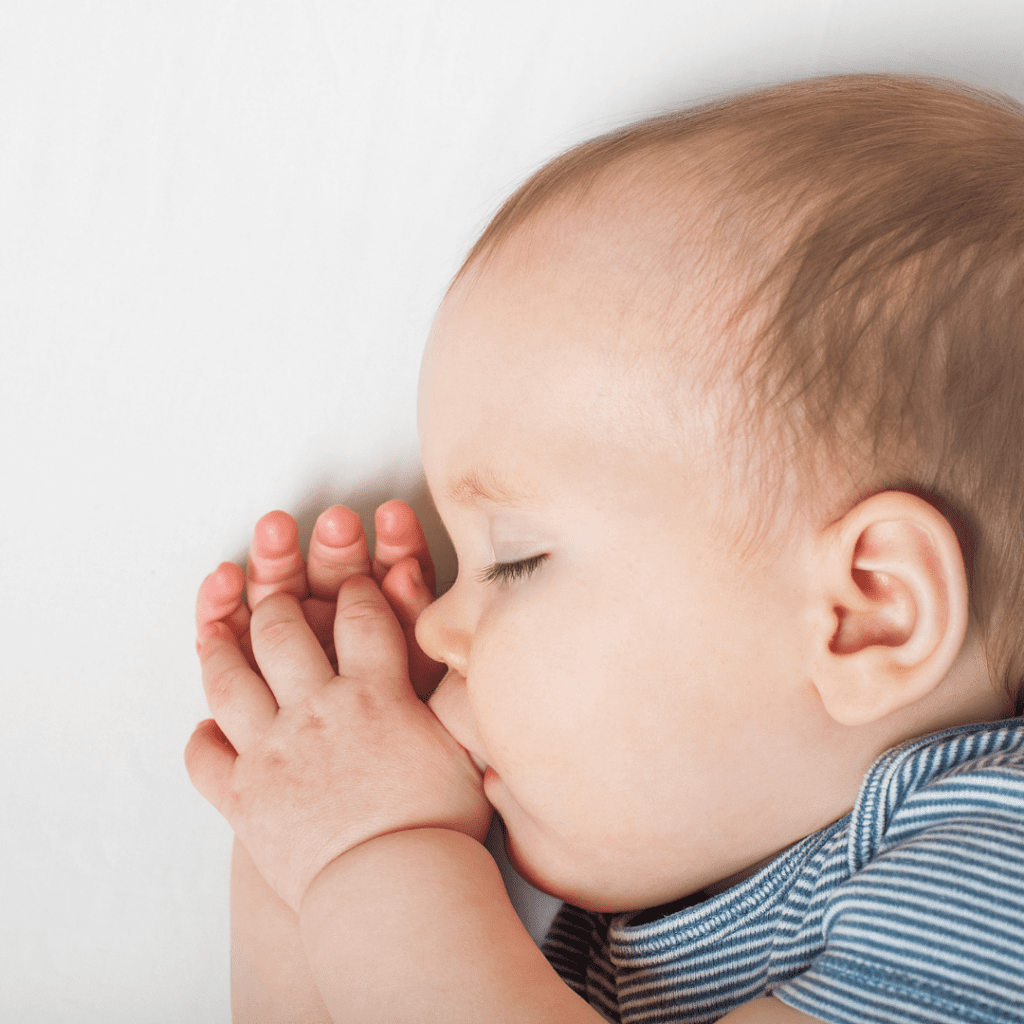
Getting your baby sleeping through the night without a feeding can REALLY help your baby sleep longer stretches. However, it is vital to ensure your comfort with the process and evaluate if you’re both ready.
And of course, always run your sleep plan by your healthcare provider, especially if you’re planning to remove night feeds.
Remember that if you’re not ready to night-wean, that’s fine! You might feel pushed by your peers (or the internet) to night-wean your baby. Don’t feel pressured to do something you don’t want to do. It’s all about your comfort and goals.
Was this helpful? Pin it to save for later!
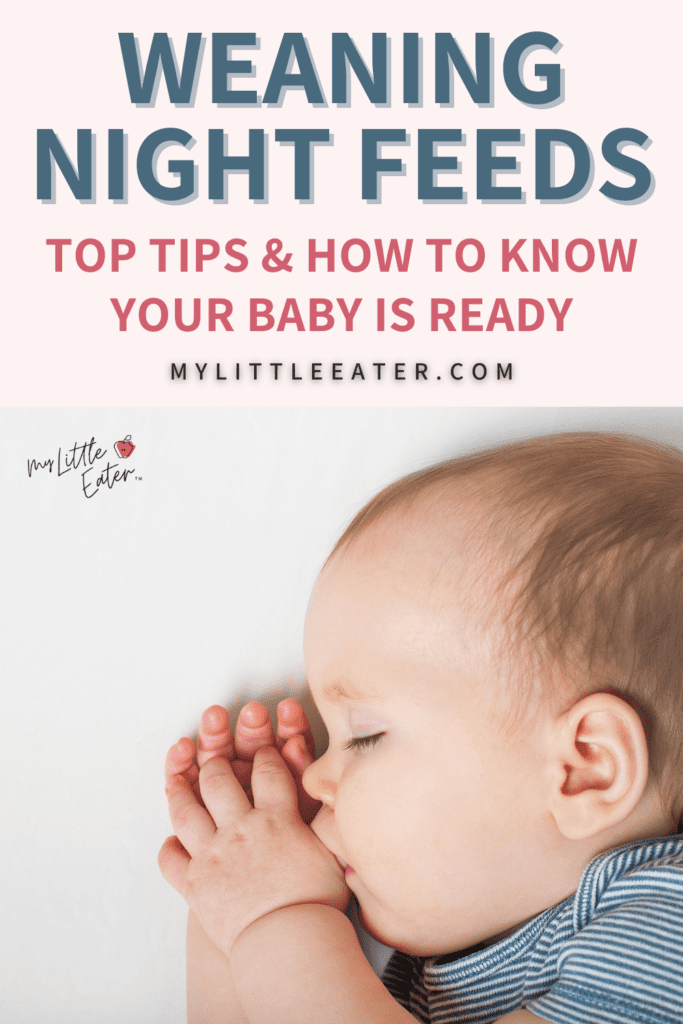

Eva Klein
Eva Klein is a Pediatric Sleep Consultant, owner of My Sleeping Baby, and a mom of 3. She helps exhausted parents across the globe get higher-quality, more restful sleep through her renowned sleep courses, private coaching, and corporate seminars. Watch her FREE sleep masterclass where she will show you how to get your little one consistently sleeping 11-12 hours at night and napping like a champ (even if you feel like you’ve tried everything).

Eva Klein
Eva Klein is a Pediatric Sleep Consultant, owner of My Sleeping Baby, and a mom of 3. She helps exhausted parents across the globe get higher-quality, more restful sleep through her renowned sleep courses, private coaching, and corporate seminars. Watch her FREE sleep masterclass where she will show you how to get your little one consistently sleeping 11-12 hours at night and napping like a champ (even if you feel like you’ve tried everything).



